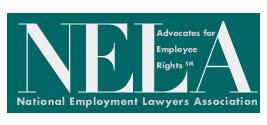 630-LAWYERS | 630-529-9377
630-LAWYERS | 630-529-9377
Se Habla Español
Overtime Issues for U.S. Employers: Exempt vs. Non-Exempt Employees
 When considering overtime pay, there are two different types of employees: exempt and non-exempt. If you are an exempt employee, your employer is not required to pay you overtime. When making determinations about whether an employee is exempt or not, employers typically look at the type of pay the employee receives, the kind of work the employee does, and the day-to-day responsibilities the employee has. Sometimes, whether inadvertently or on purpose, employers will classify employees incorrectly, resulting in non-exempt employees not being paid overtime when it is necessary. If you are not being properly compensated by your employer, you should speak with an employment law attorney to learn about your options.
When considering overtime pay, there are two different types of employees: exempt and non-exempt. If you are an exempt employee, your employer is not required to pay you overtime. When making determinations about whether an employee is exempt or not, employers typically look at the type of pay the employee receives, the kind of work the employee does, and the day-to-day responsibilities the employee has. Sometimes, whether inadvertently or on purpose, employers will classify employees incorrectly, resulting in non-exempt employees not being paid overtime when it is necessary. If you are not being properly compensated by your employer, you should speak with an employment law attorney to learn about your options.
Exempt and Non-Exempt Employees
The United States Department of Labor governs how employees are classified, and the Fair Labor Standards Act (FLSA) sets guidelines on when employees are to be paid for overtime work. The Illinois Minimum Wage Law also sets statewide standards for how overtime is calculated and which types of employees are exempt and non-exempt from overtime.
Non-Exempt
Many workers fall into the non-exempt category. In fact, non-exempt is typically the rule, not the exception. Both the FLSA and the Illinois Minimum Wage Law state that when non-exempt employees work more than 40 hours in a work week, employers must pay the employee one and a half times the normal hourly rate for every hour worked over 40. There are exceptions to that rule, however, which is where the exempt employee status comes in.
Exempt
Certain occupations and types of work are exempt from overtime pay. The FLSA states that executive, administrative, professional, outside sales, and certain computer employees are exempt from the overtime rule. These exemptions are often called “white collar” exemptions. In order for you to be exempt from overtime, you must:
- Be paid a salary;
- Be in a “white collar” position; and
- Be paid more than $455 per week, which is the minimum salary.
The Illinois Minimum Wage Act also states that agricultural laborers, government employees, and educational or resident non-profit employees are exempt from overtime.
An Aurora Employment Law Attorney Can Help
Understanding how you are classified can help you understand whether you are exempt or non-exempt from receiving overtime compensation. Your employer simply stating that you are exempt from overtime is not enough--the nature of your work and the types of duties you perform must also be in line with your exempt status. If you believe that you were classified incorrectly or that you are not being compensated for overtime work, you should contact a Naperville employment lawyer. Khan Nayyar & Associates, LLC can help you settle your dispute and ensure that you are fairly paid for the work you perform. To schedule your consultation, call our office at 630-LAWYERS.
Sources:
https://www.thebalancecareers.com/exempt-and-a-non-exempt-employee-2061988
http://www.ilga.gov/legislation/ilcs/ilcs3.asp?ActID=2400&ChapterID=68













